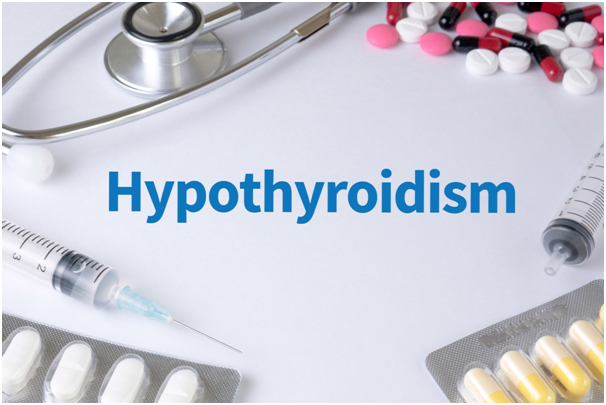Did you know that almost 7% of the American population suffers from some kind of autoimmune disease?
These debilitating conditions cause
your body to mistake healthy cells for a threat. When this happens your body
begins to attack and destroy them. One such condition, Hashimoto’s thyroiditis,
can have dire effects on our overall bodily functioning. This is because the
thyroid gland is an essential part of our hormone regulation.
The causes of Hashimoto’s are still
under investigation. But some scientists suspect the involvement of genetic
factors. Keep reading as we answer the question: “Is Hashimoto’s
hereditary?”.
What
Is Hashimoto’s?
Hashimoto’s is an autoimmune disease
that affects the production of hormones in the thyroid. This butterfly-shaped
gland is located towards the front of your neck. It plays an important role in
the production and regulation of hormones.
Think of the thyroid gland as the
body’s hormone control center. Autoimmune diseases occur when the body’s immune
system produces lymphocytes or white blood cells. These gather abnormally in
the thyroid. They then begin to attack and destroy healthy thyroid
cells. This attack leads to the thyroid becomes inflamed and
underactive.
Eventually, the thyroid cannot serve
its critical function of producing and regulating hormones in the body. An
underactive thyroid spells disaster for your hormonal
functioning. It affects bodily functions like growth and development,
temperature regulation, strength, and metabolism. An underactive thyroid has a
knock-on effect, as the body depends on hormones to function efficiently.
Hashimoto’s can also affect a
person’s fertility, making it more difficult to conceive. People with
Hashimoto’s who become pregnant should carefully monitor the development of the
fetus. This is because the disease may result in the fetus developing heart,
brain, and kidney defects.
Is
Hashimoto’s Hereditary?
The science behind Hashimotos is still a bit unclear, and its exact cause is unknown. But
scientists expect that the disease might be hereditary. This is due to the
prevalence of thyroid disorders among families. If someone in your family is
diagnosed with Hashimoto’s it’s important to get your thyroid checked
regularly. This means that there is a greater chance that you will also
develop a thyroid condition.
The uncertainty around a genetic
link is due to the fact that there are many other factors that may contribute
to Hashimoto’s.
The disease occurs most commonly in
women, but anyone can suffer from Hashimoto’s. You’re also more likely to
suffer from Hashimoto’s if you work around radiation and if you already have
existing autoimmune disease.
Other potential triggers of the
disease are excessive consumption of certain proteins and iodine.
Certain medications and viral infections can also be culprits.
What
are the Signs of Hashimoto’s?
The symptoms of Hashimoto’s will
appear gradually. This is why some people don’t get a diagnosis until the
disease has progressed quite far. You might begin to notice steady weight gain
and hair loss. Hashimoto’s is also often misdiagnosed as a depressive disorder.
This is because suffers will
experience bouts of sluggishness and sadness, accompanied by excessive
exhaustion. Other common symptoms include always feeling cold, high
cholesterol, dry, cracking skin, and constipation.
High cholesterol can also sometimes
indicate Hashimoto’s. Our thyroids produce hormones that regulate the levels of
cholesterol in our blood. When the thyroid isn’t functioning properly, these
hormones cannot get rid of excess cholesterol, resulting in high cholesterol
levels. High cholesterol comes with its own set of concerns.
More noticeable signs of Hashimoto’s
are the swelling of the thyroid so that it protrudes slightly from the neck. A
protruding, swollen thyroid gland is referred to as a goiter. If the thyroid
becomes severely inflamed, you may also have difficulty swallowing and
breathing.
How
Is It Diagnosed?
If you suspect that you’re suffering
from Hashimoto’s, you’re going to want to book an appointment with an
endocrinologist as soon as possible. This is because Hashimoto’s can wreak
havoc on your system if left untreated. Untreated cases may result in anemia,
confusion, and heart problems, including heart failure.
Endocrinologists are specialized
doctors who are experts in glands and hormone production. An endocrinologist
will note all of your symptoms and investigate other possible causes. They
should also ask you about your family tree to determine any generational
factors contributing to your symptoms.
An integral part of diagnosing
Hashimoto’s is measuring the levels of thyroid-stimulating hormone (TSH) in
your blood. If your blood sample shows higher levels of TSH, it means your body
is trying to compensate for your underactive thyroid. This is a good indicator
of Hashimoto’s.
How
Can Hashimoto’s be Treated?
Unfortunately, if you’re diagnosed
with Hashimoto’s, you’re likely to be on medication for the rest of your life.
A synthetic thyroid hormone called Levothyroxine is the go-to treatment. This
will replace those hormones that the thyroid is struggling to produce.
After you’ve been on levothyroxine
for a while, your symptoms will begin to disappear. This makes the condition
fairly easy to manage; however, you’ll have to go for regular check-ups and
blood tests to ensure that your hormone levels are normal.
Lifestyle changes are also important
to avoid worsening the condition and developing other autoimmune diseases.
People suffering from Hashimoto’s should generally avoid foods high in iodine
like fish and broccoli. Regular exercise also does wonders for the body’s
functioning, encouraging a healthy immune system and strengthening the
muscles.
Hashimoto’s
and Genetics: The Bottom Line
If you suffer from Hashimoto’s you
may be worried about what that means for your family. It’s difficult to find an
exact answer to the question: “Is Hashimoto’s hereditary?”. However, scientific
advancements in treatment mean that even Hashimoto’s is passed on genetically,
it is easy to manage. With effective medication, regular check-ups, and living
a healthy life, Hashimoto’s doesn’t have to spell disaster.
Our health section has all the info you need on the latest developments in health and healthcare. If you enjoyed this article, check it out.










